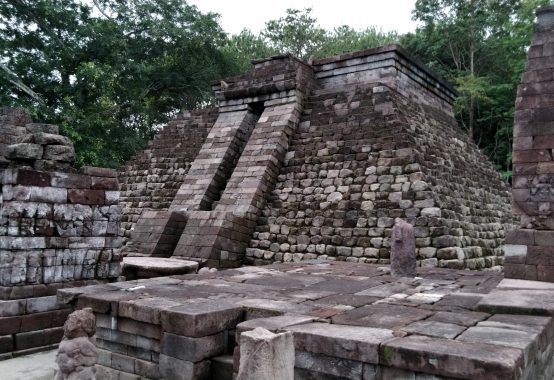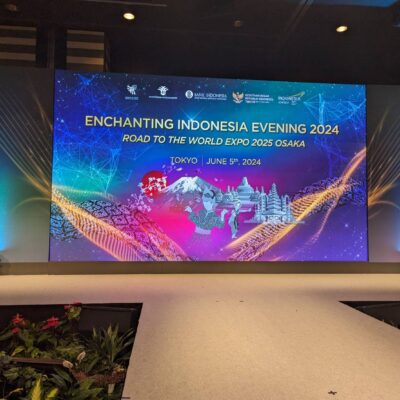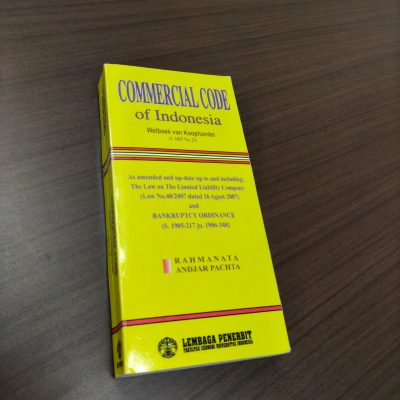2018年7月に、インドネシアで外国人を雇用する際の手続きが改定され、「外国人労働者利用手順に関する労働大臣規程2018年第10号」が施行されています。
上記法令は、2021年3月31日制定の「外国人労働者の利用に関する大統領令2021年34号の施行法令に係る労働大臣令2021年8号」によって撤廃されました。
さて、今回の写真は、ライトアップされたプランバナン寺院です。
今週2019年2月24日(日)午後6時のTBS番組「世界遺産」で、「プランバナン寺院遺跡群」が取り上げられていましたね。私も、懐かしく見ておりました。
写りのいい遺跡の写真は、上記リンクよりご確認ください。
以下は、2016年2月28日付けのブログ記事の移管です。
外国人労働者に退職金は必要か? (Foreign workers in Indonesia may receive severance allowances?)
外国人の退職金に関する裁判例について、興味深い情報を見かけたので紹介したいと思います。
I would like to introduce an interesting article regarding the civil case of foreign worker’s severance allowances.
ちなみに、インドネシアでは懲戒解雇の場合でも、退職金の支払いが法定されています。
It is legally required for companies to pay severance allowances even in the case of disciplinary dismissal.
ジャカルタ産業関係裁判所は、10年間取締役を務めた外国人の「取締役」が株主総会決議で理由なく解任された事例において、当該外国人取締役が、労働法(Law No.13/2003)における退職手当、勤続功労金、権利補償金を受領する権利を有する旨を判示したとのことです。
According to the above article, the Jakarta Industrial Relations Court made a decision that the foreign “director” was entitled to receive severance pay, long service pay and compensation of rights based on Labor Law (No.13/2003) in the civil case that the foreign director who worked for 10 years was dismissed by the resolution of General Meeting of Shareholders without reasons.
なお、この判決は、①外国人労働者は、期間の定めのある雇用契約に基づく労働者であるところ、②期間の定めのある労働者は、退職手当、勤続功労金、及び権利補償金を受領する権利を有しないという通説に反すると解説されています。
It is explained that this decision is contrary to the prevailing understanding that ① the foreign workers are employees under employment agreement for a specified period of time and ② such employees are not entitled to receive severance pay, long service pay and compensation of rights.
※① 労働法42条4項は、外国人は、インドネシアにおいて、特定の職種、特定期間のみ雇用され得ると規定しています。また、外国人の労働許可等の期限と雇用期限は一致するようにされています。
Art. 42(4) of Labor Law provides that “Workers of foreign citizenship can be employed in Indonesia in employment relations for certain positions and for a certain period of time only”. In addition, the term of Work Permit etc. of Expatriate is commensurate with that of employment agreement.
※② 期間の定めのある雇用契約では、就業規則などで記載のない限り、退職金の支払いは不要と解釈されています。
It is interpreted that severance allowances are not needed in case of employment agreements for specific period of time unless otherwise provided in work rules etc.
また、インドネシアでは、外国人労働者は、退職金を受領する権利を有しないと広く考えられているようです。退職金は、失業に対する補償であり、また外国人ではなく、インドネシア人を保護するものと理解されているようです。
It seems that foreign workers in Indonesia may not receive severance allowances. It is widely regarded that these allowances are compensations for losses of job, and protections of Indonesian workers, not foreign workers.
というのも、外国人労働者は、一般的にインドネシア人に比べて高給取りで、インドネシア人には付与されない各種手当を得ており、もともと優遇されているからとのことです。
This is because foreign workers generally get better salaries than Indonesian, and receive some benefits which Indonesian do not receive. In short, foreign workers are treated better.
他方で、期間の定めのある雇用契約には延長(労働法59条4項)・1回限りの更新(労働法59条6項)があるところ、実際には更新制限の不順守などがあり、外国人も、期間の定めのない雇用契約に基づく労働者となり得るので(労働法59条7項)、退職手当、勤続功労金、権利補償金を受領する権利があるとの考え方もあるようです。
On the other hand, it is possible to extend (Art. 59(4)) and only once renew (Art. 59(6)) employment agreements for specific period of time, and, in fact, some employers do not comply with the limitation of renewal, thus, foreign workers can be employees under employment agreements for non specific period of time (Art. 59(7)). Therefore, there is the idea that foreign workers may receive severance pay, long service pay and compensation for rights.
また、労働法には、退職金に関して、外国人労働者をインドネシア人労働者と別に取り扱う規定はありません。
There is no provision which differently treats foreign workers and Indonesian workers in terms of severance allowances in Labor Law.
判決全文を入手できていないので、なんとも言えませんが、取締役が株主総会決議で解任された場合に「労働法」が適用され、退職金が支給されるという判断には、個人的に大いに疑問が残ります。
I have not get the court decision in full yet and I am not sure the case exactly. However, I cannot understand the point that the director may receive severance allowances by the application of “Labor Law” in case of the dismissal of the director by the resolution of the general meeting of shareholders.
当該外国人が、取締役の地位と労働者の地位を有していたというのであれば、理解できますが、そのような事実は記事で触れられていません。
I can understand the case if he held the positions of the director and the employee, however, the article does not mention so.
取締役の地位と労働者の地位を分けて考えていないのか、混乱があるように思います。
I guess that the court does not separately consider the positions of the director and the employee.
いずれにしろ、インドネシアの裁判例や最高裁判例には拘束力がないため、同様事案の別件において、同様の判断がなされるとは限りません。
Anyway, precedents in Indonesian courts do not bind other courts, thus, it is not clear whether we can expect the same judgments in similar cases or not.
※上記は、筆者の見解を交えた説明であり、個別事例への適用については一切の責任を負えません。個別の案件に関しては、別途ご相談にご確認ください。
(Disclaimer) I accept no responsibility for losses that may arise from reliance upon information contained in this article. Full legal advice should be taken from a qualified professional when dealing with specific situations.
弁護士 味村祐作 (Yusaku Mimura, Attorney at Law in Japan)


















この記事へのコメントはありません。